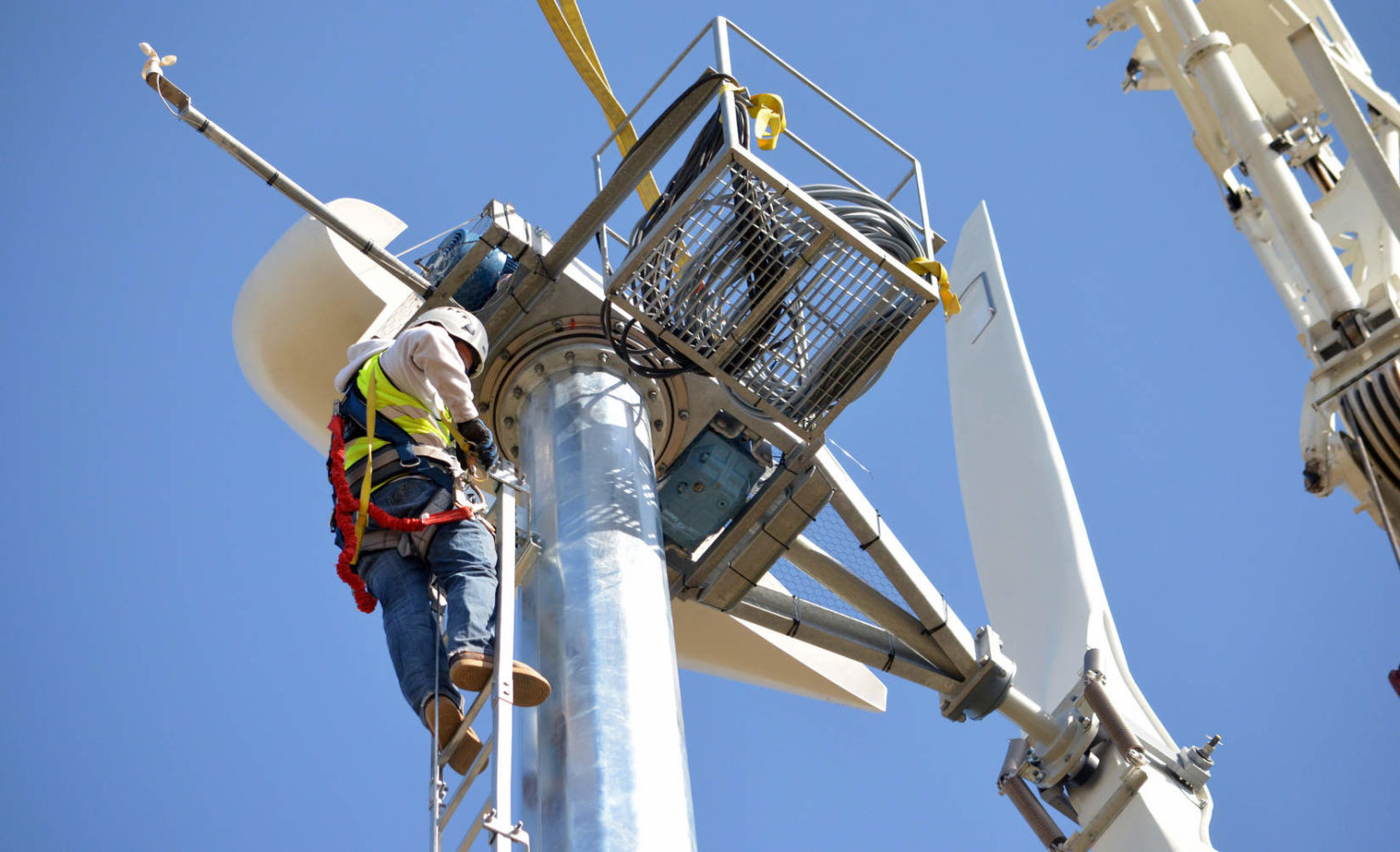Redundant North Sea energy workers are offered free football tickets to build revolutionary new electricity storage systems, writes Terry Macalister at Climate News Network.
Highly-skilled engineers – many of them recently made redundant – are being offered free football tickets to switch from the fossil fuel industry to work on a green battery boom.
This is because the “big six” utilities (the UK’s largest energy suppliers), industrial firms and individual householders are all installing storage systems to back up wind, solar and gas-fired power.
redT energy, a UK company which has developed its own storage technology, says it is doubling staff and already hiring former oil workers. The recruitment drive is helped by the fact that the low price of crude since 2014 has meant tens of thousands of workers have lost jobs in Aberdeen, the unofficial capital of the British oil industry.
Bryan Fotheringham, an engineering manager at redT, is one of those who have made the transition. He says: “What you have is a huge wealth of intellectual capital and skills, which have been honed in the UK industry.
“You can’t let that go to waste. Clean energy is a natural career evolution for those of us who have spent some of our career in oil and gas.”
Seeking Sparkies
But it is not just engineers that are in demand, thanks to the surge in the storage sector. Eaton, a large US-based multinational, is on a recruitment drive in Britain too, but is looking for electricians. It wants “a few hundred” sparkies, as they’re known, who can be trained to work on installing its xStorage Home system.
To show it means business, Eaton has signed an unusual partnership agreement with the English Premier League football club Manchester City. The power management group, with total global sales of US$20bn last year, will not only provide services to Man City’s own facilities, but is hoping as well to use the soccer brand for marketing.
And the bid to find the sparkies will involve an inducement – tickets to Man City games. “The highest level of award (for electricians) will be VIP passes at the Etihad Stadium: not a lot, but some,” says Cyrille Brisson, a vice-president at Eaton.
Also in expansion mode is London-based Powervault Ltd, which is aiming to ramp up sales of its home storage system from 1,000 this year to 50,000 by 2020. Another local rival, Moixa, wants to turn its 1,000 annual sales into one million by 2020.
These small UK firms are competing with much larger rivals, including Tesla, controlled by the billionaire inventor Elon Musk.
“Clean energy is a natural career evolution for those of us who have spent some of our career in oil and gas”
The UK’s Electricity Storage Network, established to lobby on behalf of the sector, says thousands of skilled workers are needed.
“Deployment of storage presents a real opportunity for job creation. Based on activity amongst our members, if we meet the Electricity Storage Network’s target of seeing 2GW [gigawatts] storage capacity deployed by 2020 and 5GW by 2025 in the UK, we estimate that an additional 12,000 jobs could be created,” said Georgina Penfold, ESN’s chief executive.
And the battery bonanza is far from being a predominantly British affair. Musk, who set up Tesla Motors and SpaceX, is moving towards peak production at his new Gigafactory in the middle of the Nevada scrublands. That will employ 6,500 workers and double the world’s supply of lithium-ion batteries – the most common sort used in storage and electric cars.
The US was already estimated to have 336 MW of battery storage in place at the end of 2016 – double the number a year earlier. China, India and several other countries are also keen to add storage to their energy arsenal.
A report from SmartestEnergy, an arm of Japan’s Marubeni group, claims that UK commercial battery storage capacity will grow 100-fold by 2020. It puts the current capacity at a meagre 20 MW but believes this will rise to 2,300 MW within a few years.
Intermittent power
Among the larger battery storage schemes currently on the drawing board is a £12m (US$15.7) project to provide 49 MW by big six energy supplier EDF. Another supplier, Good Energy, has just raised a £10m bond issue to invest in battery storage and electric vehicle (EV) charging points.
Lithium-ion battery pack prices have fallen globally by three-quarters since 2010 and could plunge by a similar amount by 2030, according to Bloomberg New Energy Finance.
But the biggest driver is still the huge amounts of new intermittent power sources coming into the world’s energy system to beat climate change. This is helping to clean up emissions but has also led to ever more volatile power prices as continuous power producers such as coal and old nuclear plants are retired or pushed off the system.
This has triggered a massive R&D drive to find the “holy grail” of cheap, light and powerful storage. Much of the work has been put into improving lithium-ion batteries, but there are numerous other alternative systems being developed too.
redT for instance uses “flow” technology, where the power is stored in liquid form, while rival Highview Power Storage is experimenting with storing power using chilled air.
But while the experimentation goes on – so does the marketing, installation and recruitment. Fossil fuel may have helped create global warming, but its oil workers may help beat it too.
Photo: US Army Corps of Engineers via Flickr | CC 2.0
Subscribe to our newsletter
Stay up to date with DeSmog news and alerts







